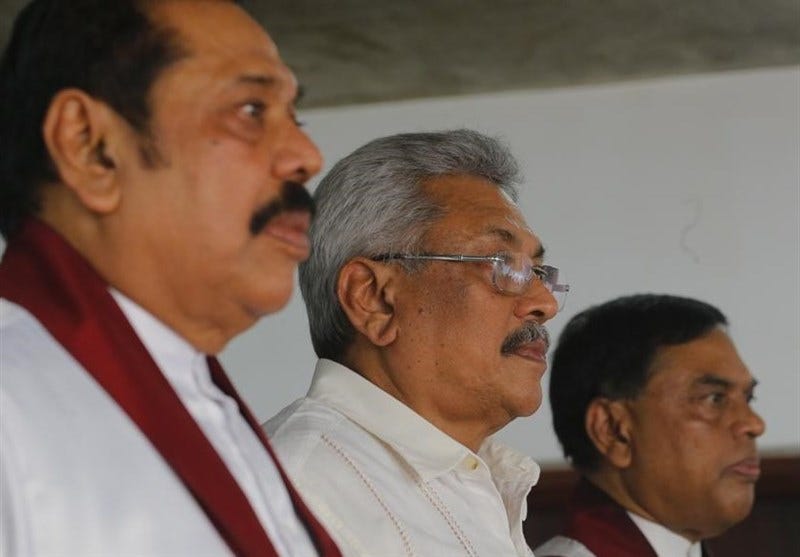By: Salman Rafi SheikhDespite nearly two months of mass protest and opposition demands for Gotabaya Rajapaksa to go amid an economic crisis regarded as primarily due to mismanagement, Sri Lanka’s incumbent president, who won the 2019 presidential elections promising economic and security stability – is still in power. Mass protests and the subsequent crisis cost the ruling Sri Lanka Podujana Peramuna (SLPP) the prime ministership held by Rajapaksa’s elder brother Mahinda, But the executive president is still in power in the face of shortages of petrol, medicines, foreign reserves, cooking gas and a range of staples. Two days ago, Gotabaya defeated the opposition’s no-confidence motion as well by a margin of 119-68 votes and now appears safe via a lapdog prime minister from a loyalist party. The Rajapaksas have dominated Sri Lankan politics since the end of the country’s bitter civil war, which ended in 2009 with the crushing of the Tamil Tigers amid accusations of authoritarianism, corruption nepotism and bad governance that has resulted in the country’s first default on its debts in history… The text above is just an excerpt from this subscriber-only story.To read the whole thing and get full access to Asia Sentinel's reporting and archives, subscribe now for US$10/month or US$100/year.This article is among the stories we choose to make widely available.If you wish to get the full Asia Sentinel experience and access more exclusive content, please do subscribe to us for US$10/month or US$100/year. |


